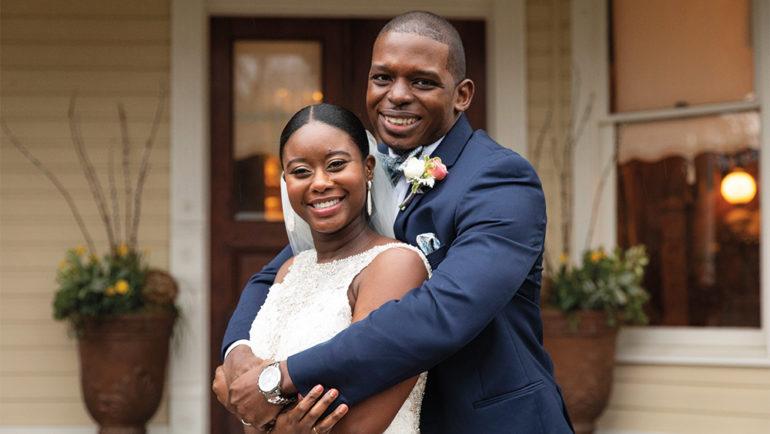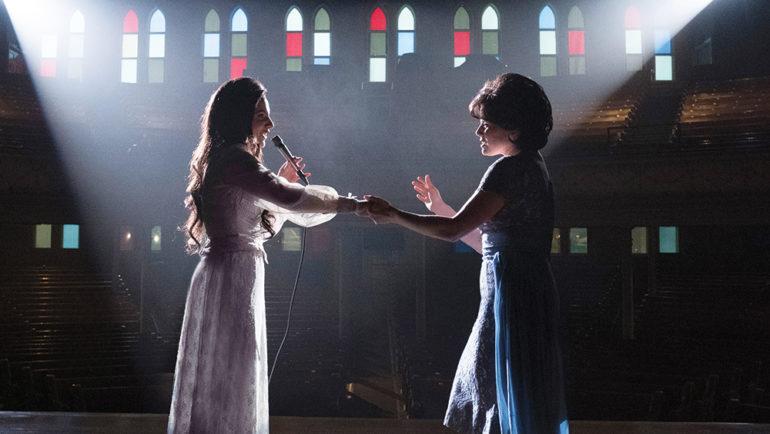Lifetime at 35: Women as ‘Survivors, Not Victims’ and Expanding Unscripted Brands
By Danielle Turchiano
LOS ANGELES (Variety.com) – Robin Roberts. Gretchen Carlson. Alex Cooper. Wendy Williams. Jo Frost. Ashley Graham. As Lifetime hits its 35th anniversary as a network, it does so with a plethora of pivotal partnerships to further the brand’s promise to keep women’s perspectives the drivers of their narrative stories.
“Our women are survivors, not victims,” says Tanya Lopez, executive vice president, movies, limited series and original acquisitions, and Lifetime Movies. “It’s something we’ve seen that we as a network — only on Lifetime — will do. And that’s the big theme that we have now used as a filter for everything that we are doing: Only on Lifetime will you hear this way of telling a story.”
Although Lifetime’s goal was always to put women’s stories at the forefront, Lopez feels the brand began evolving to its current theme in 2016 when it released “Surviving Compton: Dre, Suge & Michel’le,” telling Michel’le Toussaint’s story in her own words. In 2017, Lifetime followed with “I Am Elizabeth Smart,” which took Smart’s story beyond the media’s reporting of the crime of her abduction and explored what she went through. Earlier this year, “Victoria Gotti: My Father’s Daughter” and the Emmy-nominated “Surviving R. Kelly” followed in similar fashion.
Last month, Lifetime released “Escaping the NXIVM Cult: A Mother’s Fight to Save Her Daughter,” told from Catherine Oxenberg’s perspective, as well as “Trapped: The Alex Cooper Story,” another true tale, this time about a woman who was placed in gay-conversion therapy. This month, the college admissions scandal and the relationship between musicians Patsy Cline and Loretta Lynn get the dramatized movie treatment.
“That really brings together so much of what we’re most proud of in the brand: It’s unique, moving storytelling with a female-centric point of view and great women behind the camera as well,” says Rob Sharenow, president of programming, A+E Networks, of “Patsy & Loretta.” “I don’t think Lifetime ever gets proper credit for how we’ve always led the charge in women behind-the-camera. It’s a hot-button issue right now, but Lifetime’s always been there.”
Last year alone, Lifetime employed 67% female writers for its original movies and 55% for its series, 39% women directors for its movies and 57% for its series and 41% executive producers for its movies and 50% for its series. This year, the network is on track to increase the number of women behind the scenes in most of those areas, including movie writers (82% female); telepic directors (78% female); and executive producers across movies and series (67% and 75%, respectively).
When it comes to scripted strategy, Lopez says there are four content buckets she focuses on these days: ripped-from-the-headlines stories in the first and third quarter of the year, with biopic tales that have an inspirational or aspirational message and book-to-screen adaptations in between; the holiday block of programming “It’s a Wonderful Lifetime” comes in fourth quarter.
Listening to the audience is also why Lifetime has halted orders of original scripted series, Lopez admits, despite working with prolific producers on previous projects such as Sarah Gertrude Shapiro (“UnReal”), Greg Berlanti and Sera Gamble (“You”) and Jenji Kohan (“American Princess”).
“With the quality of the series we put on, no one’s going to say they weren’t fantastic production values. Our audience just didn’t respond, and I want to take a beat and listen to them and do a little bit more of our own inward thinking and maybe come back” to them, Lopez says.
“I don’t think lifetime ever gets proper credit for how we’ve always led the charge in women behind-the-camera.”
Rob Sharenow
Over the summer, Lifetime released five original film adaptations of VC Andrews titles, which, to binge-viewers, could feel like a form of a series. The properties were popular among the audience, delivering double-digit increases in ratings in the network’s key demo (live+same day number of 250,000 for women 25-54, bumping up to 384,000 when looking at live+3). This is leading Lopez to consider using the two-hour movie format “as launchpads into series.”
Lifetime’s scripted movies now also help drive the network’s new focus on tentpole docu projects. In addition to the scripted versions of the NXIVM and college admissions scandal stories, Lifetime also produced behind-the-headlines docs on both, hosted by Carlson.
Williams will get both the scripted TV movie and doc treatment in 2020, as well.
Gena McCarthy, executive vice president and head of programming, Lifetime Unscripted, says that diving deeper this way often satisfies “viewers’ curiosity about the real person” behind the story.
Following “’s” success (it averaged 2.1 million total live viewers, growing as each installment aired, and garnered Lifetime its 101st Emmy nomination) and cultural change (expanding the conversation around sexual abuse), the network is not only planning a four-hour follow-up to the story that includes the news of Kelly’s indictment as well as additional survivors’ stories, but it is also expanding that moniker with a “Surviving Jeffrey Epstein” project to give voice to the women at the center of those sex abuse and trafficking allegations.
But McCarthy also notes that “week in or week out, you live or die by the ongoing strength and performance of your series,” so she considers the “backbone” of Lifetime’s current performance growth to be unscripted franchises such as “Married at First Sight,” which features couples who are paired with relationship experts and who get married when they first meet and live together afterward, deciding if they will stay together. Hitting its 10th season in 2020, “” is a “North Star” of Lifetime’s ongoing development, McCarthy says, and will be expanded to a two-hour format featuring five couples next year. It has also spawned almost half a dozen spinoff series.
| “Married at First Sight” is a cornerstone of Lifetime’s unscripted content and will expand to a longer format in 2020. Courtesy of Lifetime |
“Marrying Millions,” a relationship series that follows couples with “severe income gaps,” is one that McCarthy hopes will soon anchor its own night and become a franchise, too.
Returns to some key formats will be pivotal for the network, as well. First up there is “Supernanny,” featuring Frost, whom McCarthy calls an “iconic Lifetime hero — a very credible, best in class, authentic talent, anchoring a self-contained format.” But McCarthy notes they are also excited to reinvent “How to Look Good Naked” for the female audience “the way that ‘Queer Eye’ reinvented itself for that demographic and now has a second life on Netflix.” For that, Lifetime has teamed up with Graham for a show titled “Pretty for a Big Girl With Ashley Graham.”
The focus of Lifetime’s unscripted formats is being “compelling,” McCarthy says, regardless of whether they are escapist or serious. But she acknowledges that “the more successful series we tend to have lean into the escapist bucket.” “Married at First Sight,” for example, averages 1.7 million total viewers in live+3, while “Marrying Millions” averages 886,000 in total viewers for live+3. These shows have been pushing the network to the top of the Nielsen cable charts for Wednesday nights, taking the No. 1 cable network spot for 8:30 to 10 p.m. with adults 18-49 and women 18-49.
But Lifetime is not satisfied with simply telling stories; it also wants to inspire real-world change. This year hit a special 25th anniversary milestone for the Stop Breast Cancer for Life campaign dedicated to fueling breast cancer awareness and research, while next year will mark 18 years of Lifetime’s Stop Violence Against Women campaign. Individual projects often see additional specific partnerships, such as Lifetime teaming up with the Trevor Project and PFLAG around “Trapped.” Additionally, as a talent incubator both in front of and behind the camera, Lifetime has the Broader Focus Initiative, which offers many women their first opportunities in the television industry.
“Part of the DNA of A+E Networks has always been our outreach to the audiences we serve. Whether it is breast cancer research, working to stop violence against women, or hiring women to tell the stories they are most passionate about, Lifetime has always felt proud and privileged to advocate for issues close to women’s hearts,” says Paul Buccieri, president, A+E Networks Group. “The trust audiences have in Lifetime has been built over 35 years — I don’t know that other networks have the brand equity the way Lifetime does.”


